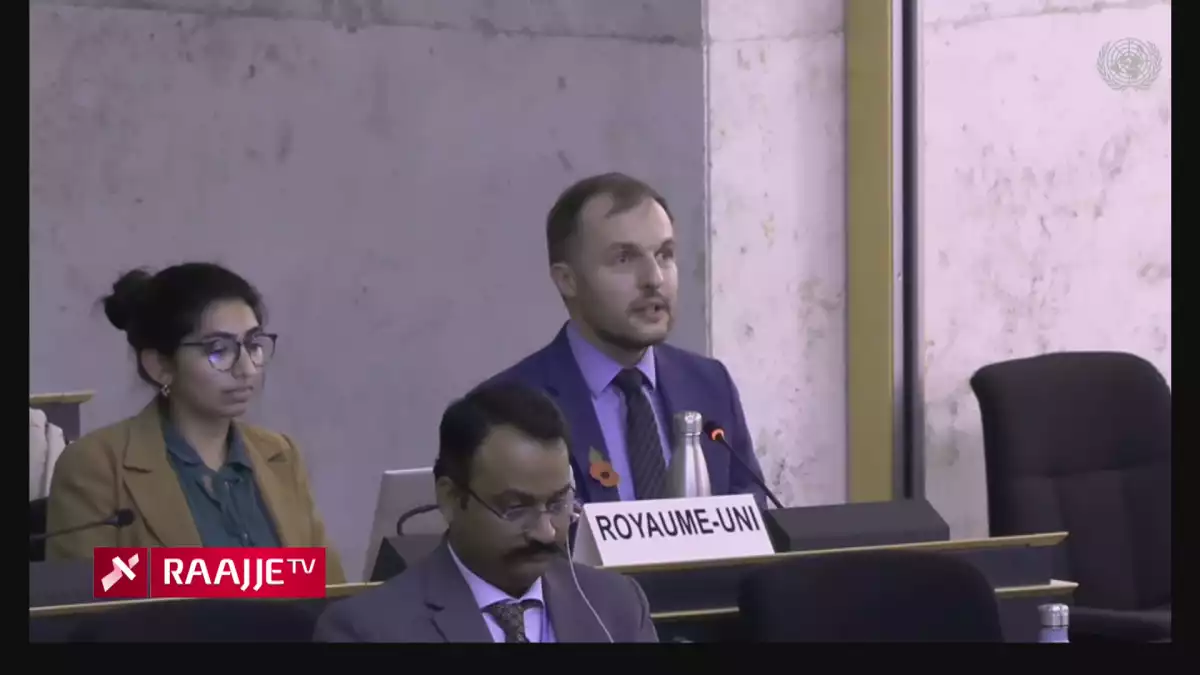
At the 50th session of the Universal Periodic Review (UPR) held on Wednesday night at the UN Office in Geneva, several UN member states raised serious concerns over media freedom in the Maldives and called on President Dr. Mohamed Muizzu’s government to protect independent journalism.
Countries including the United Kingdom, Australia, Germany, France, Estonia, Indonesia, Canada, and Spain highlighted the restrictive implications of the recently enacted media regulation law.
Many urged the Maldivian government to review the legislation and ensure that the regulatory authority established under it operates independently of political influence.

Member states also emphasized the need to uphold freedom of expression, safeguard journalists from interference, and maintain the independence of the judiciary and democratic institutions. Several delegations underscored that genuine media freedom is a cornerstone of democracy and must be preserved in line with the Maldivian Constitution and international human rights obligations.
The UPR is a global mechanism that reviews each UN member state’s human rights record every four years, assessing compliance with international treaties and commitments. As part of this process, the Maldives submitted its national report for the fourth cycle on August 4, outlining progress since the last review and the challenges faced.
During Wednesday’s UPR session, recommendations were presented based on the government’s report, submissions from civil society and the Human Rights Commission of the Maldives, and input from various UN bodies. A significant number of these recommendations centered on concerns over the new media regulation law, with over 100 countries participating in the review.
All recommendations made to the Maldives will be published by the UN on November 10. The government is expected to indicate which recommendations it accepts or rejects during a follow-up session scheduled for November 14.
In the previous UPR cycle in 2020, 95 countries submitted 259 recommendations to the Maldives, of which 187 were accepted. The latest session has once again placed media freedom and institutional independence at the center of international scrutiny of the Muizzu administration’s human rights record.








